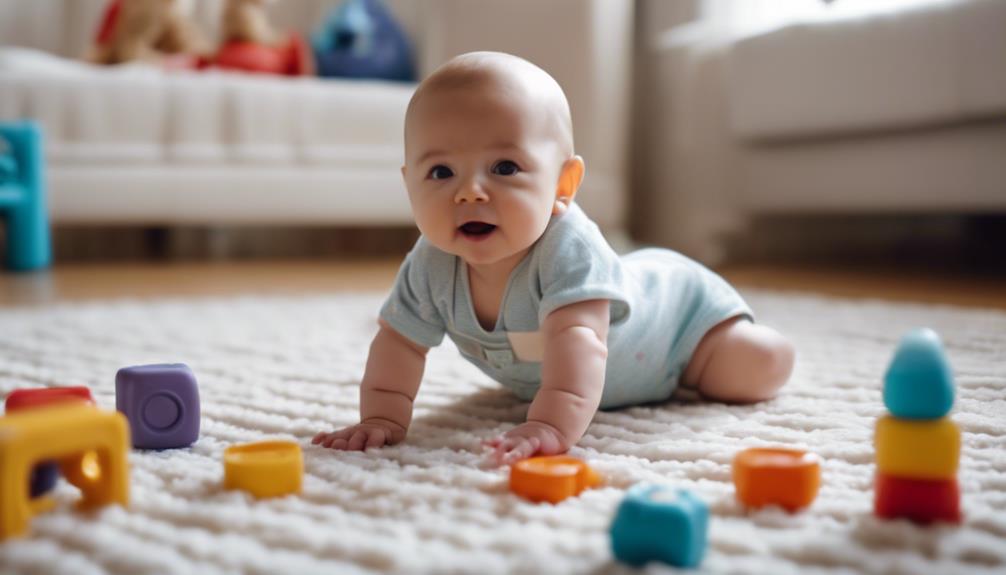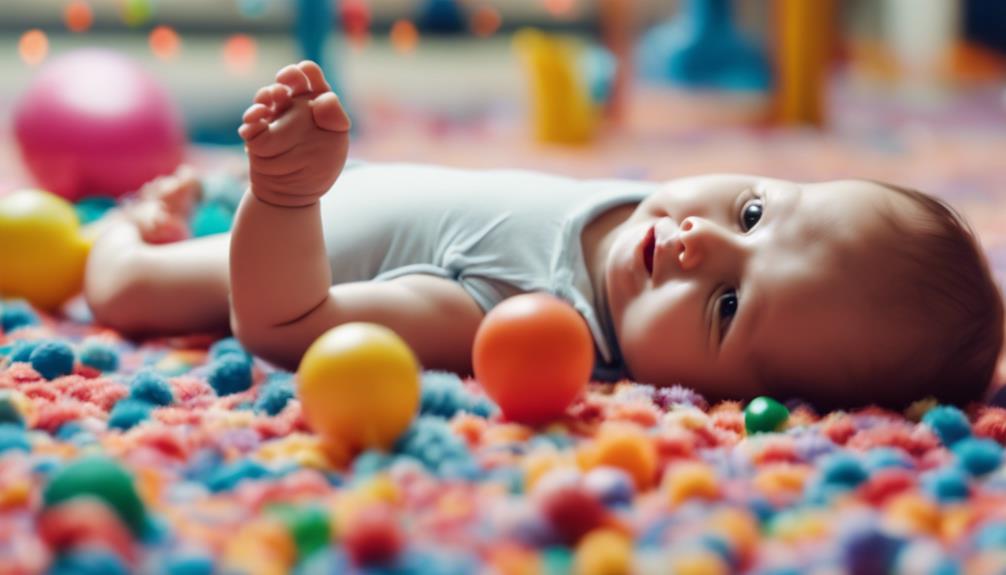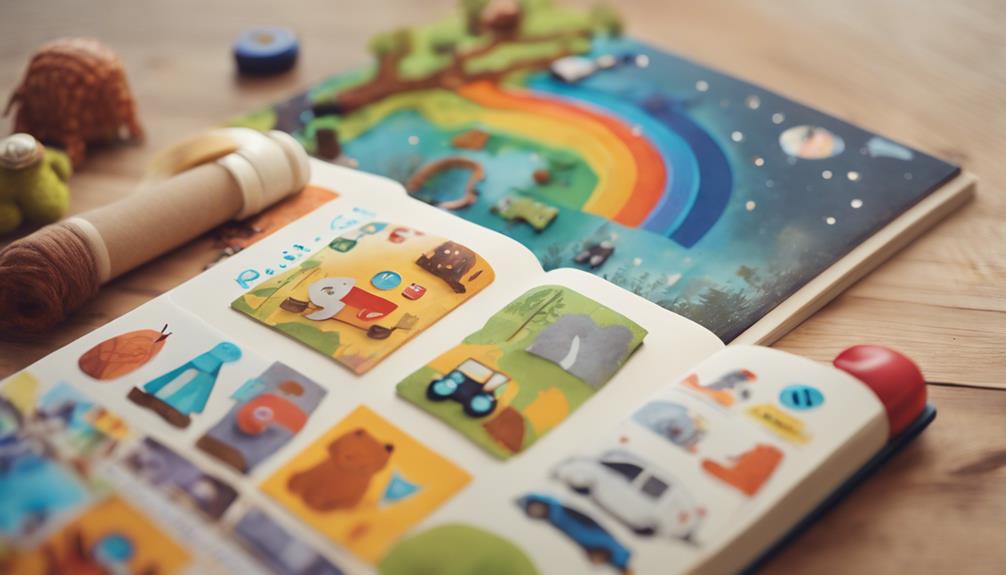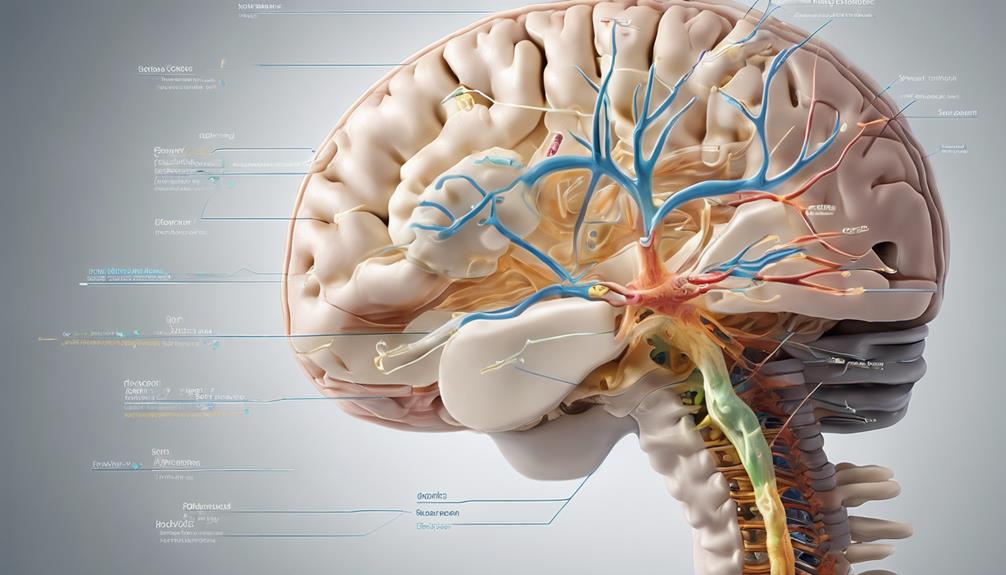To promote healthy development, involve your baby in activities such as tummy time to strengthen their neck, arms, and back muscles. Stretching exercises increase flexibility and muscle tone, which helps with movement and growth. Encourage your baby to crawl to improve their motor skills and coordination. Walking exercises will enhance their leg muscles and balance. Engage in activities that stimulate hand-eye coordination for sensory and motor skill development. These daily routines are crucial for your baby’s physical health and growth. Try out various exercises to support overall development and skill enhancement.
Key Takeaways
- Incorporate tummy time daily to strengthen muscles and promote healthy development early on.
- Introduce baby stretch exercises for flexibility, muscle tone, and improved movement.
- Include activities to help baby crawl, enhancing motor skills and coordination.
- Engage in walking exercises to strengthen leg muscles and improve balance gradually.
- Introduce hand-eye coordination exercises early on for sensory and motor skill development.
Newborn Exercise: Tummy Time
Start incorporating tummy time into your newborn's daily routine to help strengthen important muscles. Tummy time exercises are vital for babies as they help build muscles in the neck, arms, shoulders, back, and stomach. This physical activity is beneficial for your baby's overall development.
You can begin supervised tummy time as early as the first day home from the hospital. Encourage your baby during tummy time by engaging them in reaching, kicking, and looking around. It's recommended to gradually increase tummy time to at least 20 minutes per day to maximize its benefits.
Playing with your baby during tummy time, such as smiling, talking, using toys, or playing music, can make the experience more enjoyable for both of you. By incorporating tummy time into your baby's routine, you're helping them develop important muscles that will support their physical growth and milestones.
Baby Stretch Exercises

Incorporating baby stretch exercises into your daily routine can enhance your infant's flexibility and muscle tone. These gentle stretching routines not only help improve flexibility and muscle tone but also promote better circulation, digestion, and relaxation in babies.
Here are three benefits of including baby stretch exercises in your little one's routine:
- Improved Movement: Baby stretch exercises can aid in enhancing your infant's overall movement abilities, allowing them to explore their surroundings more freely.
- Healthy Development: Regular stretching can prevent stiffness and promote healthy development in babies, setting a foundation for good motor skills as they grow.
- Physical Activity: By incorporating stretching into your baby's routine, you encourage physical activity early on, helping them prepare for more advanced movements in the future.
Integrating these exercises into your baby's daily activities can have long-lasting benefits for their physical well-being and development.
Exercises to Help Baby Crawl
To further assist your baby's physical development, consider incorporating exercises that specifically target helping them crawl. Crawling plays an essential role in your little one's development, aiding in the enhancement of motor skills, coordination, and strength.
The American Academy of Pediatrics recommends activities such as tummy time to prepare your baby for crawling. Encourage your baby to reach for objects of varying sizes placed just out of reach to motivate movement. This will help build their gross motor skills and spatial awareness.
As your baby gains more strength and confidence, they'll start to shift from scooting to crawling on hands and knees. This exercise also supports the development of independence and hand-eye coordination. Additionally, practicing crawling will enhance your baby's ability to sit up and improve their grasping ability.
Baby Walking Exercises

Engage your baby in simple walking exercises to strengthen their leg muscles and improve balance. Walking with support is an important step in your baby's motor development journey.
Here are some tips to help your baby start walking confidently:
- Gradually Work: Begin by holding your baby's hands and encouraging them to take small steps. As they gain more confidence, gradually increase the distance they walk. This approach helps strengthen the muscles needed for walking.
- Use Toys for Motivation: Incorporate toys or objects that your baby is interested in to motivate them to walk. This can make the exercise more enjoyable and engaging for your little one.
- Tummy Play Each Day: Spending time on baby tummy play each day can also contribute to strengthening the core muscles needed for walking. Encouraging your baby to roll over and crawl during tummy time helps in overall motor skill development.
Baby Hand-Eye Coordination Exercises
Enhance your baby's hand-eye coordination by introducing engaging activities that involve using their hands and mouths to explore the world around them. Developing hand-eye coordination in babies is vital for their sensory development and overall healthy growth. These activities can begin as early as 3-4 months old, setting a strong foundation for their motor skills.
Two effective exercises to improve hand-eye coordination in babies are the Catch the Toy exercise and the Bubble Gaze exercise.
The Catch the Toy exercise helps babies enhance their balance and coordination skills by encouraging them to reach and grasp for a toy.
On the other hand, the Bubble Gaze exercise is beneficial for enhancing motor skills as babies track and follow bubbles with their eyes and attempt to touch or catch them.
Frequently Asked Questions
How Can I Promote My Baby Growth?
To promote your baby's growth, engage in daily activities like supervised tummy time, interactive play, sit-up exercises, leg bicycling, and weight lifting with safe objects. These routines help develop key muscles and skills for healthy growth.
Does Exercise Help Baby Grow?
Exercise does help baby grow! It boosts muscle strength, bone density, and brain development. Fun activities enhance coordination and weight gain. Regular playtime supports healthy growth and fitness. Keep moving for a strong, flexible, and balanced baby.
When Should I Start Exercising My Baby?
Start exercising your baby with supervised tummy time from day one. Encourage sit-up exercises around 6 weeks, support their head if needed. Bicycle their legs for gas relief, flexibility, leg muscles. Begin weight lifting with rattles for grasping skills.
What Exercise Should a Baby Do?
For your baby, it's beneficial to engage in various exercises like tummy time, sit-ups, bicycling, and weight lifting. These activities help strengthen muscles, improve coordination, flexibility, and overall physical development, promoting healthy growth.
How Can I Strengthen My Baby's Hips for Crawling?
To strengthen your baby's hips for crawling, engage in activities like assisted crawling, tummy time, and knee-sit exercises. Encourage movement in various positions to promote flexibility and muscle development. Provide a safe environment for exploration.
Conclusion
Now that you have learned about baby exercise routines for healthy growth, you may be wondering if it's worth the effort.
But imagine the joy on your baby's face as they reach new milestones and develop strong muscles.
These exercises not only promote physical health but also create bonding moments between you and your little one.
So grab a blanket, get on the floor, and start exercising with your baby today!










